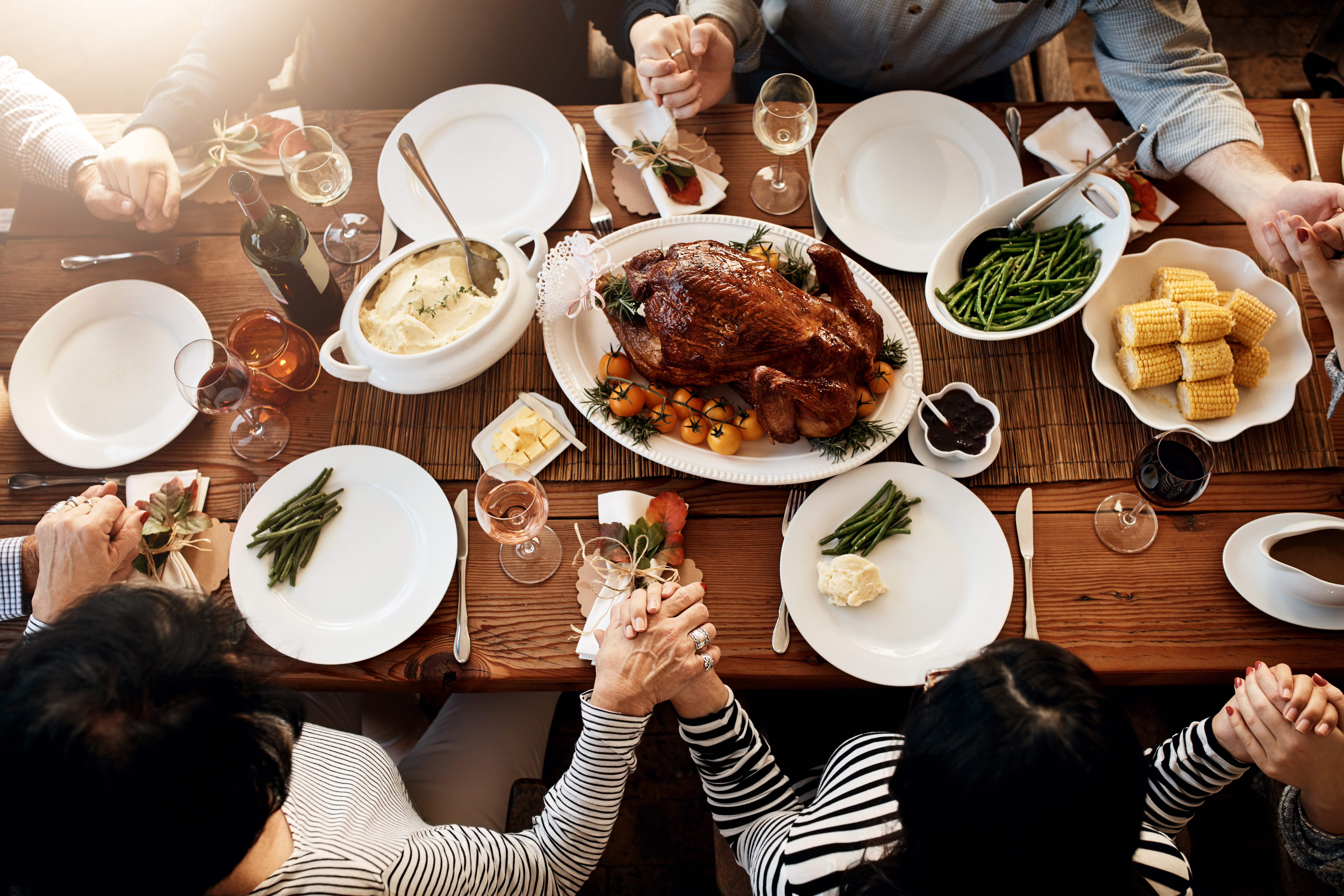In advance of Thanksgiving this year, here are some COVID-19 safety tips courtesy of—who else?—Anthony Fauci, M.D., director of the National Institute of Allergy and Infectious Diseases. Dr. Fauci laid out what an ideal Thanksgiving safety set-up would look like today on NPR’s Morning Edition.
First, of course, is making sure to the best of your ability that anyone who’s eligible for COVID-19 vaccination (so, people aged 5 and older) has gotten fully vaccinated before the festivities begin. This is particularly the case if your Thanksgiving plans involve travel—the Centers for Disease Control and Prevention (CDC) recommends that people don’t travel until they are fully vaccinated.
Vaccination is especially key for protecting those who are most vulnerable to severe illness. While last year there was significant concern that older relatives would be at high risk of catching a bad case of coronavirus during holiday gatherings, that’s different this year thanks to COVID-19 vaccines. “The elderly seem to be protected,” Dr. Fauci said on Morning Edition. According to the CDC, 99.9% of people 65 and over have received at least one dose of the vaccine, and more than 86% are fully vaccinated.
Even better if is the elderly topped up their protection. “Hopefully they got boosted because we know that the immunity diminishes as months go by,” Dr. Fauci said. (CDC data suggest about 41% of people over the age of 65 have received a booster dose.)
Making sure any family and friends you’ll be seeing over Thanksgiving are indeed vaccinated can of course be easier said than done as there are millions of eligible people who haven’t yet gotten vaccinated because they’re hesitant or outright oppose it. If you need it, here’s some advice for how to encourage vaccine-hesitant loved ones to go ahead and get this all-important inoculation.
Getting tested for COVID-19 ahead of your gathering is also an option “if you want to go that extra step towards being safe,” Dr. Fauci said. “It isn’t a requirement that you should not go indoors with anyone unless you’re tested. But for those who may be in a situation where you’re with people at a higher risk, you might want to take that extra step.”
Testing can be an especially good idea if anyone who is unvaccinated or not fully vaccinated will be at the gathering. And on that note, unvaccinated people above the age of 2 should wear a mask anytime they’re indoors with other people. Again, this might be easier said than done, especially since the hallmark of Thanksgiving involves eating and drinking delicious things, usually at a leisurely pace that would involve lots of mask-free time.
Keep in mind that your testing plan needs to be strategic in order to be as helpful as possible. Polymerase chain reaction (PCR) tests are the most accurate way to know whether or not you have COVID-19, but it can take a few days to get the results, and they only reflect your COVID-19 status at the time you actually got tested. So if you take a PCR test, then travel to your Thanksgiving destination and are exposed to a bunch of people along the way, a negative test result could be outdated by the time you arrive. But rapid tests, which can turn around results within half an hour, aren’t as accurate as PCR tests. So, if you’re planning to use testing as part of your COVID-19 Thanksgiving safety strategy, doing some combination of PCR and rapid testing is likely best (on top of, of course, vaccination as the most effective form of protection).

